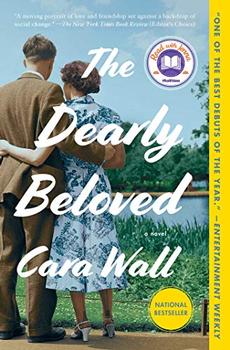Summary | Excerpt | Reading Guide | Reviews | Beyond the Book | Readalikes | Genres & Themes | Author Bio

ONE
On both his mother's and his father's side, Charles Barrett was descended from old Boston families. His father was the head
of the Classics Department at Harvard, where he taught seminars on the Romans and Greeks.
"Societies fail," his father told the freshmen year after year, "when men are rewarded for seeking pleasure instead of responsibility." His tweed jackets rasped as he cracked notes on the blackboard; his comments on papers, written in gaunt handwriting in deep blue ink, were direct and critical. At the dinner table, just before pushing back his chair to retire to his study, he often said, "Obligations are the fuel of life, Charles. Reputation is their reward."
Their shingled, sharp-roofed Victorian house was painted grey with brown shutters. Inside it was stern, angular, and choked with books, each chosen deliberately: a collection of translation, biography, and historical analysis his father would one day bequeath to the library—a legacy of edification. Charles's mother hid her romance magazines behind a bucket under the kitchen sink, and Charles fell on the comic books other boys brought to faculty parties, gorging himself as quickly and stealthily as his contemporaries emptied the cocktail glasses the grown-ups left behind. He never took a comic home, because his father did not
believe in leisure or in letting one's mind run free, without purpose. If he had seen Charles with so much as a paperback, he would have assigned Charles an essay to write or a problem to solve.
Thankfully, each June, Charles and his mother packed the station wagon with canvas totes full of shorts and white sneakers and escaped to her parents' square, damp summer house on Martha's Vineyard, which was full of rag rugs, needlepoint pillows, and dogs. Her tanned parents were waiting when she and Charles stepped out of the car onto the crushed-shell driveway. His grandmother hugged him tightly; his grandfather clapped him on the shoulder, and said, "Stack of funnies on the table," words that caused Charles to race into the dining room, dropping his bags hastily in the front hall.
Charles felt his full self in that house, bigger than himself—free and happy. His mother's sisters laughed often, walked barefoot on the lawn, meandered into town for ice cream with their arms linked together. Her brothers joked with Charles around the barbecue; he and his cousins built model airplanes, flew kites, and captained remote-controlled submarines in the salt-water lake behind the shed. Summers were when Charles learned how to sail, play tennis, fix old shutters, season butter for lobster, and introduce a new person to a crowd. Summers allowed him, though he was an only child, to feel part of a brood, a clan that sailed through the world together, as stately and festive as an ocean liner. His father visited for a week each August, sat on the beach in khaki pants and blue button-down shirts, never took off his shoes. He was not like his wife's family, and he did not like his wife's family. Despite this, Charles's aunts, uncles, and grandparents respected his father. It was hard not to. He had set forth a paradigm for himself and followed it to the letter. He was well educated, eloquent, gainfully employed, and saved from arrogance by the fact that his accomplishments were verifiable and significant. For all their diversions, Charles's mother's family esteemed intelligence and academic debate. Still, they took turns sitting next to his father at dinner, so that no one had to talk to him two nights in a row.
Charles had always known he would go to college, just as he had always known that to go anywhere but Harvard would cause his father to grumble and sigh. He wasn't unduly bothered by the expectation—he loved Harvard. He loved its tree-filled commons, its stone courtyards, its brick facades, and the snippets of conversations that fell out of its open windows. He could picture himself there, walking to class in a blue blazer, books tucked beneath his arm. He could imagine the smoky smell of autumn slipping into classrooms as his professors entered, hear the gentle pop of new texts opening, see clean notebook pages white and blue beneath his pen.
Excerpted from The Dearly Beloved by Cara Wall. Copyright © 2019 by Cara Wall. Excerpted by permission of Simon & Schuster. All rights reserved. No part of this excerpt may be reproduced or reprinted without permission in writing from the publisher.




Great political questions stir the deepest nature of one-half the nation, but they pass far above and over the ...
Click Here to find out who said this, as well as discovering other famous literary quotes!
Your guide toexceptional books
BookBrowse seeks out and recommends the best in contemporary fiction and nonfiction—books that not only engage and entertain but also deepen our understanding of ourselves and the world around us.